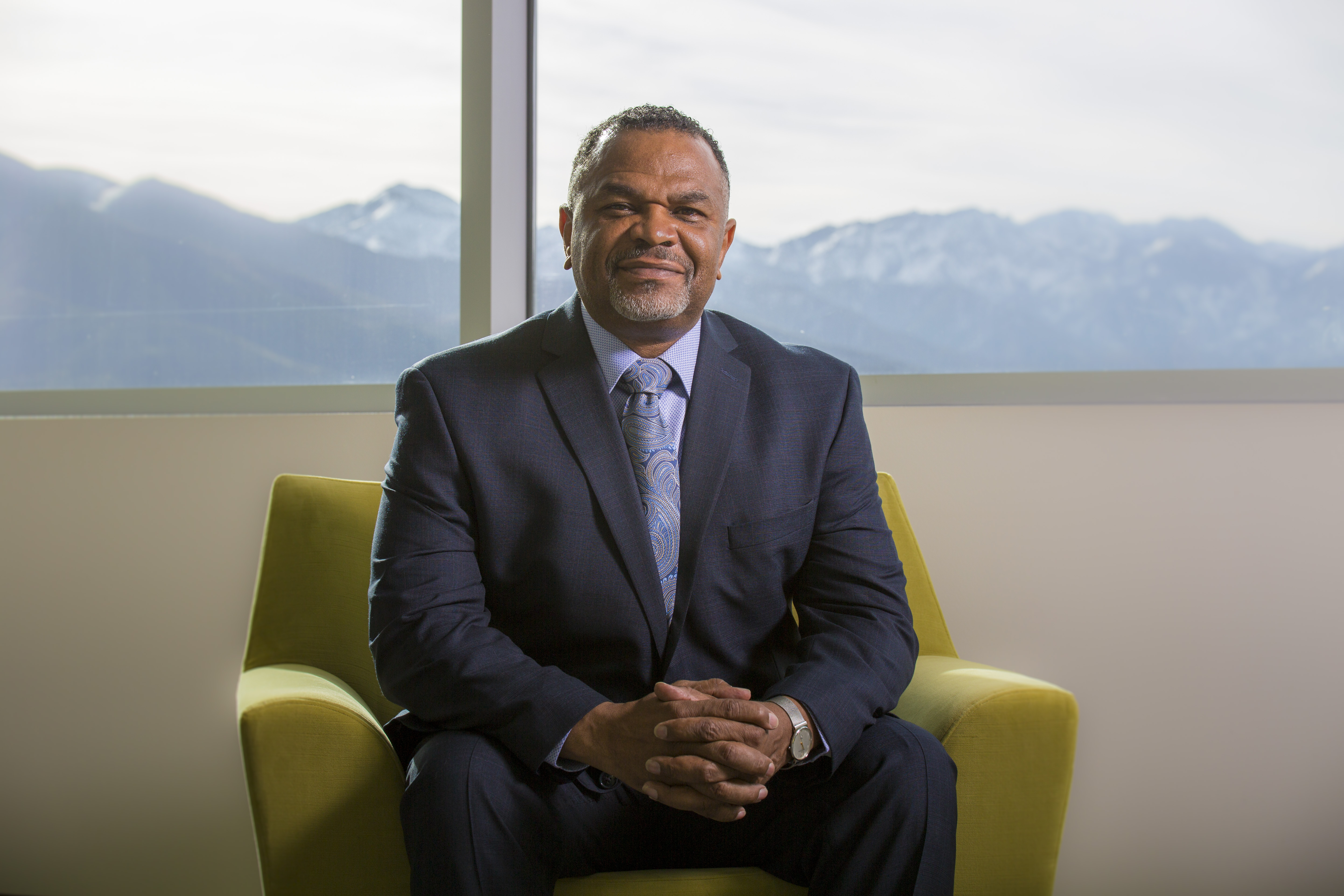A Conversation with Dean Martell Teasley

Q. Your path to social work was rather atypical. Will you share your story?
A. I had no ambition about going to college. I was from a blue-collar family, and I planned to get a 9 to 5 job. It was the 1970s, I had just finished high school and I was working in the steel mill (in Ohio)—I have a nice scar on my left arm from a grinding wheel hitting me there. A couple years in, I started taking some classes at the University of Cincinnati. When a series of layoffs hit five years later, I wanted to continue my education. Odd jobs covered tuition but didn’t give me enough to also live on. I ended up in the United States Army because I wanted to finish college. I had no intentions of staying there the 10 years that I did—first as a medic and then as a nurse in the first Gulf War. I was medically retired in 1991 and decided, although nursing was rewarding, I wanted to do counseling. When I described this to a Veteran’s Administration advisor—he suggested social work. I thought, “Take kids out of homes?” After obtaining two degrees at Fayetteville State University, I went to Virginia Commonwealth University for my MSW, while continuing to work part-time as a nurse. Then I finished the MSW program and was encouraged by mentors to pursue a PhD; I ended up at Howard University. I think that was a good decision.
Q. How does your experience in different disciplines inform your interdisciplinary collaborations?
A. A common goal in social work and nursing is being a humanitarian. My experiences in both fields give me the ability to look at things from different positions. Both social workers and nurses are concerned about how an individual’s health affects well-being and social functioning, which are social determinants of health. However, health care workers are more concerned about an individual’s physical health, whereas social workers concentrate on individual social functioning and lifestyle. Today, social workers are fully integrated into the nation’s health care services. I can add a lot to those collaborative conversations, because I have those different perspectives.
Q. Why Utah?
A. Everything kind of fit in place. I got a call from Utah. The first thing I thought was, “Just be polite—but that’s not going to happen.” Then I thought, “Don’t turn down opportunities until you have fully vetted them.” First, I found out it’s only 2 hours 45 minutes to fly back to San Antonio to see my daughter. It was hard to move away from her—she’s a real daddy’s girl. Then I began to look at the weather report and I thought—it’s not that cold! Then I quickly realized this university and school are addressing the needs of the people within the context of their community—that went a long way with me. Additionally, research and grant funding are strong, the programs are intact and addressing issues that are germane to the surrounding community and region. The College and University are in good financial health. The metrics here are better than other higher ranked schools. The only thing needed was a dynamic leader (laugh)—and I thought I could be that leader.
Q. We understand you have a spectacular art collection. Will any treasures make it to your new office?
A. I brought in two pieces. It’s not expensive stuff, it comes from street vendors in South Africa. They are very talented and every time I go over there I just keep buying things, because it’s really nice. And art is a way for me to relax. I can get really engulfed in a project so that it takes up my whole weekend, particularly if it’s writing. However, stopping for three to five hours and dealing with the art—stretching it myself, framing it, and sometimes even touching it up a bit (the street artists don’t know about that)—is cathartic for me.
Q. What would you like your legacy at the CSW to be?
A. It’s not so much about me, but about us as a collective. During my time, we want to launch the College on a trajectory that sustains it for the future—its education programs, research opportunities and community based initiatives. We exist to educate students and prepare them for the future. We must have a signature pedagogical practice—one or several things we do better than other programs. Ultimately, I hope I am remembered as just being a generally nice person. When I left San Antonio, students told me they could tell I really cared about them. That really warmed my heart, because they are what it is all about.
